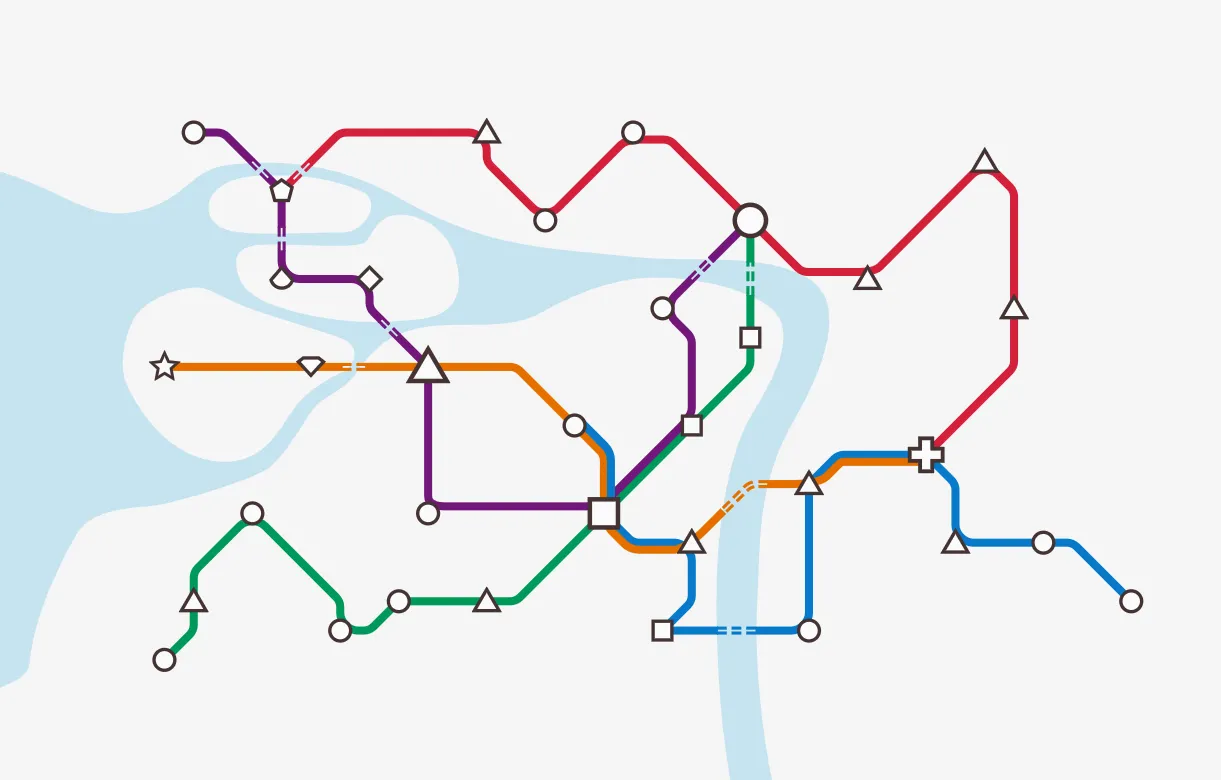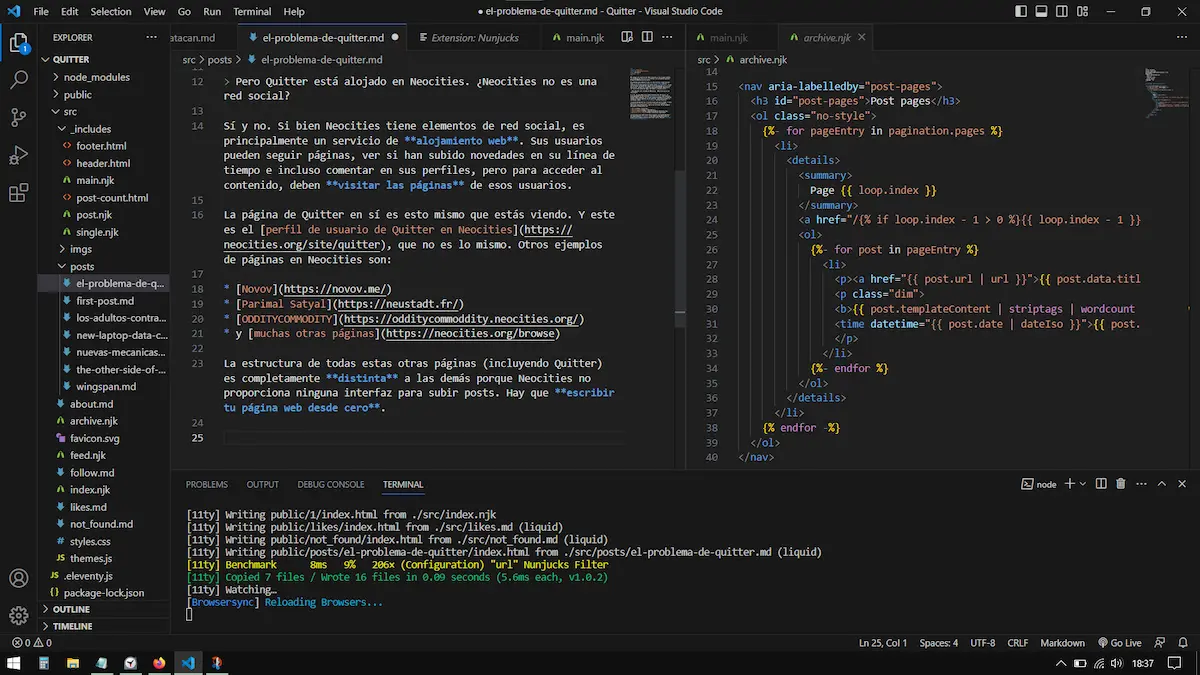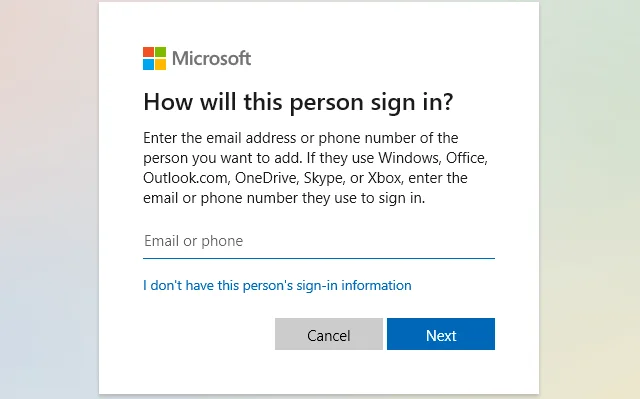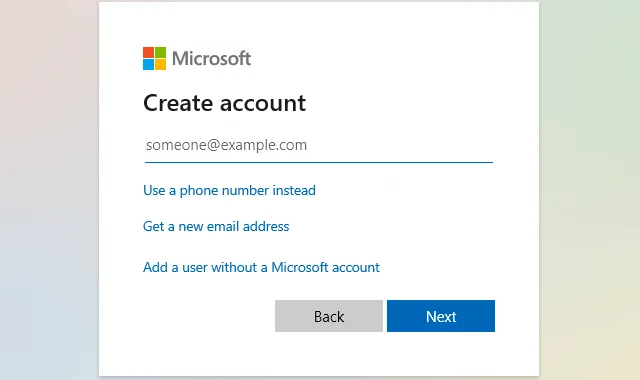727 words, a 4 minute read.
¿Por qué?
No soy un usuario técnico, pero Linux me ha llamado la atención desde hace años. Vale, supongo que sí que soy un usuario más técnico que mis padres. También me interesa aprender sobre ordenadores, pero los motivos principales por los que me atrae Linux son sociales.
- No tengo suficiente dinero como para andar comprando licencias de sistemas operativos.
- Me parece grave tener que desactivar manualmente la publicidad que trae Windows 10 pese a haber pagado por el producto.
- Quiero apoyar el software libre y gratuito porque me parece una alternativa moralmente superior y, a menudo según mi experiencia, también superior a nivel técnico. Es el equivalente en software a apoyar proyectos colectivos sin ánimo de lucro como bibliotecas o Wikipedia, con intención anticapitalista y al servicio del usuario antes que al servicio del mercado.
- Quiero usar un sistema operativo más eficiente con los recursos de mi portátil, para una vida más larga de la batería.
La experiencia, de momento
Instalé Linux Mint (una de las muchas distribuciones, "distros", de Linux) en mi portátil, junto a Windows 10. He configurado un dual boot, es decir, tengo una partición de Windows y otra de Linux y cada vez que mi ordenador se inicia aparece un menú en el que puedo elegir rápidamente si quiero arrancar con un sistema operativo o el otro.
Por lo visto, Linux Mint es una distro muy recomendada para personas novatas, tanto por su parecido con Windows como por su proceso de instalación y comunidad.
Instalación
Para mí la instalación fue relativamente sencilla, pero creo que usuarios novatos no técnicos encontrarían dificultades. Es un proceso con bastantes pasos, por lo que es más fácil atascarse en alguno de ellos. Además, la configuración de BIOS (arranque) de cada modelo de ordenador es distinta, y muchas personas se sentirían intimidadas si tuvieran que orientarse sin ayuda de tutoriales en esos menús, pensados para usuarias avanzadas.
Funcionamiento
- La marca que fabrica mi portátil cuenta con su propio programa para controlar ciertas opciones de hardware, como por ejemplo el bloqueo de carga de la batería por encima del 60% para extender su vida útil, o botones dedicados en el teclado para cambiar entre distintos modos de consumo de energía (potencia turbo, normal o de ahorro), activar y desactivar el touchpad, etc.
Estos botones, sin ese software, no hacen nada. El software debería poder comunicar a la usuaria, desde cualquier sistema operativo que haya decidido instalar, con su portátil físico. Sorprendentemente, sólo está disponible para Windows. He encontrado una alternativa no oficial para Linux, pero el proceso de instalación está siendo muy complicado y no he conseguido hacerlo funcionar... Aún no tengo ni idea de lo que es un kernel. - Una cosa que me sorprendió poder hacer sin problema es acceder a todos mis archivos de mi partición de Windows desde mi partición de Linux (a la inversa, obviamente, es imposible).
Sin embargo, al principio obtenía errores en varias aplicaciones al intentar guardar archivos en la partición de Windows desde Linux. Tras una búsqueda rápida vi que era debido a que Windows tenía activada la opción de "arranque rápido". Eso significaba que Windows, en lugar de cerrarse al apagar el sistema, se mantenía en hibernación para que el próximo inicio fuera más rápido, esencialmente manteniendo los archivos "secuestrados" mientras usaba Linux. Una vez localizado el problema, desactivar esa opción fue muy sencillo. - El touchpad a veces deja de responder, aunque curiosamente se "despierta" después de tocar alguna de las teclas de función, como las de volumen.
- La batería dura más mientras uso Linux Mint.
- La interfaz de usuario es intuitiva, bastante parecida a Windows 10.
Conclusión
De momento y pese a las dificultades, estoy satisfecho con Linux Mint y la personalización superior que permite. Dudo que vuelva a instalar Windows en un futuro, aunque con este ordenador lo sigo usando de tanto en cuando por comodidad.
Si nos cononcemos personalmente y te interesa probarlo pero tienes problemas para hacerlo, me encantará ayudarte.
277 words, a 2 minute read.
I mainly read non-fiction, but I like to read fiction as well if any aspect of the story, characters, writing style or fictional universe is new, weird or relatable enough to me to pique my interest.
So I've read a couple of Haruki Murakami novels: Kafka on the Shore and Sputnik Sweetheart. They were recommended to me years ago, Kafka on the Shore in particular because...
Spoilers for Kafka on the Shore
... it features a gay trans man.
I liked some aspects of the books, I'm not even sure if I liked them as a whole. But they've certainly left some impression in me, which is something I value. Both felt quite slow and uninteresting to me at the start, but somewhere along the middle of the book the story picked up, and interesting, suspenseful and crazy things were constantly happening—which made it difficult to put the book down at times.
I'm still not sure if I didn't totally get the stories or if there's not that much I should get. But I appreciate their dreamy quality, imagery and characters.
Here's a list of my favorite things from each story:
Spoilers for both books
Kafka on the Shore:
- The "afterlife" town after the "entrance stone".
- Nakata and Hoshino. Nakata is a really calming character to me; so is Hoshino learning to let go of things in order to follow Nakata and "see what happens".
Sputnik Sweetheart:
- The Ferris wheel scene and Miu's two selves.
- The mysterious music K hears outside and how it appears to connect the "two worlds".
608 words, a 4 minute read.
It's been a while since I last posted something. I've been very busy without getting much benefit from it, so I'm feeling somewhat stuck in life at the moment. But here's a string of thoughts I've had.
Some days ago, I was comfortably lying down on a bench in a park, getting a break from the heat under a tree's shadow. I was reading this book: Invisible Women: Data Bias in a World Designed for Men. Here's an excerpt from its preface:
[The gender data biases] impact on women’s lives every day. The impact can be relatively minor. Shivering in offices set to a male temperature norm, for example, or struggling to reach a top shelf set at a male height norm. Irritating, certainly. Unjust, undoubtedly.
But not life-threatening. Not like crashing in a car whose safety measures don’t account for women’s measurements. Not like having your heart attack go undiagnosed because your symptoms are deemed ‘atypical’. For these women, the consequences of living in a world built around male data can be deadly.
I was just starting chapter 1, which talks about urban planning, and particularly about public transport.
It explains that women, because they assume most of the care work (that is, unpaid work such as taking care of family and housework), are more likely to trip-chain. Trip-chaining is a travel pattern characterized by multiple short travels, such as those one does when running multiple errands: taking the kids to school, accompanying an elder to the hospital, getting groceries on the way home, walking the dog, leaving again to get the kids. That is in contrast to the linear travel patterns typical of men, like home-work-home.
And when it comes to public transport route layouts, typical radial systems favor the home-work-home (or home-leisure-home) travel pattern, to the detriment of trip-chaining (that is, mostly women). Trip-chaining benefits from grid-like structures. In my city, somewhat recently, bus travel routes were changed to be grid-like, presumably for this very reason.
As I was leaving the park, I remembered a fun game I had been playing, Mini Metro. It is minimalistic in both graphic style and game mechanics, which is delightful.
In Mini Metro, the objective is to link the rapidly appearing shapes (stations) with metro train lines. The simulated passengers want to travel to a particular kind of shape, and the player must design an efficient line system.
The game simulates passenger and station behavior in such a way that:
- Oftentimes, the same shape kinds congregate in the same area; for example, there'll be a bunch of circle stations close to each other but their passengers need to travel to one of the few square stations far away.
- Passengers don't need to get to a specific station of a given shape, they just need to go to some station of a given shape.
- Passengers never need to travel to a different station of the same shape they're in.
To me, those were strong incentives to devise radial line systems, instead of grid-like ones.
This left me pondering: what kinds of passenger behavior would need to be implemented/discarded so that the efficiency of a grid-like system as a gameplay strategy (and thus women travel patterns) would become apparent? Would allowing for travel between same-shaped stations be sufficient?
As I don't really have an answer right now... I'll just wrap it up by recommending again both Invisible Women: Data Bias in a World Designed for Men and Mini Metro.
575 words, a 4 minute read.
Mis amigos son usuarios de redes sociales y, en su mayor medida, no se mueven por la blogosfera.
Yo no quería decirle a la peña directamente que me podía "seguir" de varias formas en Quitter, porque no quería que nadie se sintiera en el compromiso de hacerlo.
Pero pensé que sería probable que, al visitar Quitter, estas personas asumieran que estaba alojado en una red social que desconocen; que la interfaz vendría predefinida y que, por lo tanto, el botón de "seguir" en el encabezado sería inútil para ellos, porque les llevaría a una página donde registrarse (al estilo de Tumblr y otras redes, que muestran el botón de seguir incluso si no visitas desde una cuenta).
El icono de dicho botón, mientras escribo este post, se ve tal que así (probablemente cambie en un futuro):
Bueno, pues nada más lejos de la verdad: todo lo que se ve en Quitter, no solamente el contenido de mis posts, ha sido programado desde cero y ajustado a mis necesidades. Las diferentes opciones que implementé para recibir notificaciones de nuevos posts ("seguirme") fueron pensadas para cualquier tipo de visitante.
Éstas son las entrañas de Quitter; un editor de texto en el que programo la interfaz (HTML, CSS y 11ty con Nunjucks y Liquid) y escribo los posts (Markdown):
Pero Quitter está alojado en Neocities, ¿Neocities no es una red social?
Sí y no. Neocities tiene elementos de red social, pero es principalmente un servicio de alojamiento web. Sus usuarios pueden seguir a otros, ver si han subido novedades en su línea de tiempo y comentar en sus perfiles, pero para acceder al contenido de sus páginas, deben visitarlas.
La página de Quitter en sí es esto mismo que estás viendo. Y este es el perfil de usuario de Quitter en Neocities. Otros ejemplos de páginas alojadas en Neocities son:
La estructura de todas estas páginas es completamente distinta a las demás porque Neocities no proporciona una interfaz para subir posts, sino para subir páginas web enteras.
La cuestión es que un sitio web donde no hay anuncios y todos los controles y enlaces son potencialmente útiles para todos los visitantes es una excepción a la norma.
Por casualidad, me acabé enterando de que un par de amigos que sí querían seguirme ni siquiera vieron el botón, y sospecho que también otros. Es lo esperable, porque a base de anuncios y redes sociales nos han entrenado para filtrar subconscientemente este tipo de elementos. Haber confiado en que los visitantes usaran el botón fue un tanto ingenuo por mi parte.
Eso me entristece un poco, porque este "lenguaje" que imponen las redes sociales (a favor del capital, no de las personas) implica tener que abandonar interfaces o experimentación potencialmente eficiente o interesante.
Quería crear un sitio web donde todos y cada uno de los elementos fueran útiles, sencillos y perceptibles. Pero está claro que nuestra percepción de las interfaces viene influida por un contexto concreto, por lo que no puedo tratar la interfaz como un lienzo en blanco.
Bueno, que se viene nuevo botón. No sé cuándo.
984 words, a 6 minute read.
My laptop was malfunctioning and I had to replace it. Thankfully, the seller issued a full refund and they'll be able to repair it to re-sell it as reconditioned, so it won't be wasted.
Data collection tactics
As I was installing Windows on my new laptop, it shocked me to see how Windows coerces users into linking a Microsoft account with their computer instead of creating a local account, so that they can gather more data from them. This is not only during installation, but also upon creating a guest account in the system, every time Windows updates, or in customer support threads.
The truth is, doing that is completely unnecessary unless the user wants to use services like cloud storage.
What's the difference between local and Microsoft accounts? Why is user data valuable?
A local user is not connected to a Microsoft account and, by extension, to an identity across the internet. Microsoft can still collect local data depending on the user's settings, but they can't link it to other information that the user may provide through using any of Microsoft's services or using the internet (Outlook, Xbox, Office, Skype, Edge, Bing/Windows search, tracking cookies...).
The more data points and connections someone provides a company, the more effectively they can be profiled and targeted for ads. Data is very valuable to advertisers, and they're generally not worried about user privacy.
If you want to limit what this company knows about you, see this following article: Windows 10 Privacy Guide: Settings Everyone Should Use.
As an example, here's the menu for adding a new account to a Windows system. Imagine you want the new account to be a local one:
Note how the option to create a local account is not clearly described ("I don't have this person's sign-in information" instead of "create a local account") and it is an unnoticeable link instead of a big button like the other options.
There's still another step after clicking that link, which prompts us to create a Microsoft account. "Add a user without a Microsoft account" will create a local account:
It goes without saying that the vast majority of companies, not just Microsoft, employ tactics like these. Privacy options are often obscured through UI-UX (User Interface and User eXperience) design. I wouldn't call the above example's UI "bad" in the technical sense, since it fulfills Microsoft's purpose. But I would call it "bad" as in morally reprehensible.
Advances in UI-UX are working both for and against us. We expect less and less friction from UIs, which means most users will not read carefully enough to even know that options that benefit them exist.
Some tech-savvy people adopt a "sheeple" narrative when talking about the average user that I dislike. It's not the user's fault, it's the corporations' fault. Doing things as quickly as possible in convenient, quick UIs is a requisite nowadays if we hope to achieve any free time. Our system doesn't account for the time we'd need to spend enforcing privacy or educating ourselves about our rights as users, citizens and human beings— just because I have an interest for learning these things in my free time shouldn't mean everyone else can.
Furthermore, companies pay skilled designers and data analysts billions of dollars to make their products addictive. Social media and most video media sites are addictive because every detail about how we interact with their app is monitored. Data that seems trivial, when gathered from millions of users, can be processed and studied in such a way that it becomes very valuable. The desitions taken based on this data, such as what content to show us next, keep us scrolling for as long as possible and gain these companies a lot of money.
So being aware of tactics like these is not enough: many users know their relationship with these sites is unhealthy, but are unable to do anything about it. What is one user against these giants, actively working to keep us hooked?
Power users are curious users
I like the process of customizing my new laptops, operating systems and software. By "customizing" I mean both the fun stuff like functional/cosmetic settings and also the chores, such as privacy-related settings (although going through these is painstaking, I derive some twisted enjoyment from spotting where and how companies try to gather data, and telling them to go fuck themselves if at all possible).
I customize software to an extent that sometimes seems excessive to others, and I know few people that could be described as power users. As defined in Wikipedia,
A power user might not have extensive technical knowledge of the systems they use but is rather characterized by competence or desire to make the most intensive use of computer programs or systems.
I encourage you to tinker with your software. The settings option is the first thing I click on when I download something new, usually without any particular purpose besides knowing what options are available. I wouldn't discover a lot of useful features I use regularly otherwise.
As we tinker more and more with our software it gets easier to imagine and actively seek tools or options that would make our life easier, because we may have encountered them previously, somewhere else.
However, being aware that a setting that literally reads:
Save your activity history to get back to what you were doing when you switch devices (consult our privacy policy)
actually entails:
Let us sell your data to third parties
probably comes with reading privacy guides, not just tinkering.
But it's cool to start somewhere, and you'll get useful things out of it.



